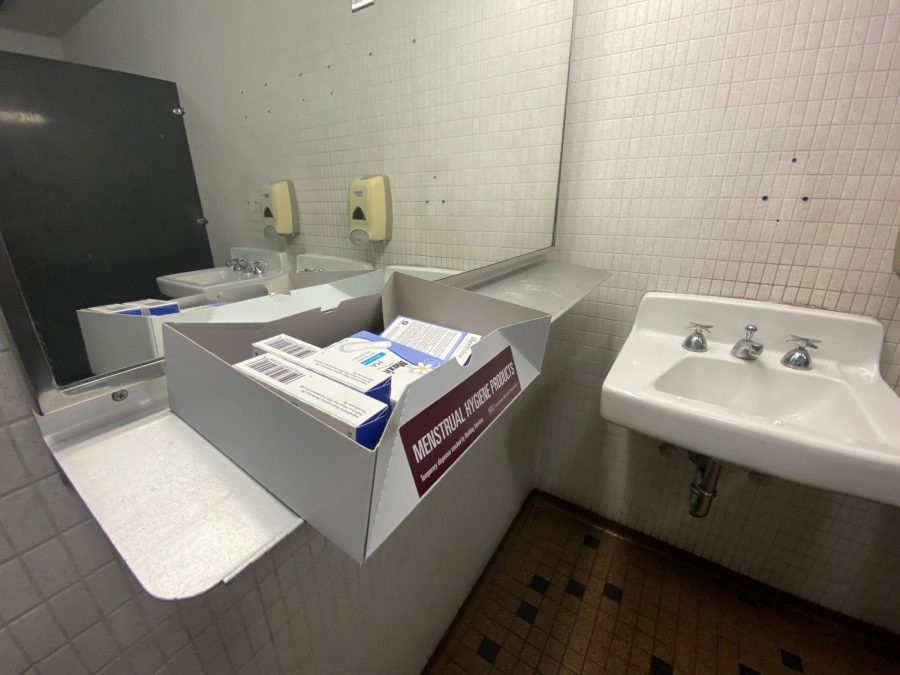Menstrual Hygiene Products in Bathrooms: Ending Period Poverty
Sophie Whitten | @swhittenphotography
Menstrual hygiene products sit in the women’s restroom Sept. 26, 2021 at SIU in Carbondale, Ill.
A bill signed into law by Gov. JB Pritzker in August requires all Illinois colleges to make feminine hygiene products freely available in campus restrooms.
Many students at SIU-C haven’t seen the bill come to fruition on campus. Amber Koteras, a sophomore, said she has never been to a school restroom that has provided tampons or pads for free, and is frustrated when she isn’t able to provide the products for a friend or herself.
“It definitely brings the question of, ‘how willing is my school to meet my basic needs?’,” Koteras said.
Advertisement
Koteras said hygiene products, such as tampons, pads and panty liners are expensive for college students with limited incomes.
“We don’t have a lot of money,” Koteras said. “It makes it hard for people who are financially struggling to get what they need.”
Janine Armstrong, president of the Women, Gender, and Sexuality Studies Resident Student Organization at SIU-C, said people in need of menstrual hygiene products often have to ask others in the restroom if they have extras.
Otherwise, people lacking those menstrual hygiene products might have to take significant time out of their day to shop at an off campus store, or pick something up from their home.
Tracy Williams, an SIU-C resident assistant (RA), said other schools she attended in the southern Illinois area had hygiene products available, but she hadn’t seen them in many restrooms at SIU-C.
SIU-C had made menstrual hygiene products available on a trial basis in 2019, according to The State Journal-Register, but the administration decided it didn’t have the financial resources to keep up with the high demand.
Armstrong said she’s happy these products will be added to women’s restrooms on public university campuses, as it could reduce student’s financial burden by thousands of dollars over their years at school.
Advertisement*
“I think it’s going to take away from the shame because that product will be right there,” she said.
The bill does have a blind spot with regard to menstrual hygiene among trans people, Armstrong said, and universities should also make those products available in men’s restrooms.
“Trans men and gender nonbinary people who won’t go in the women’s bathrooms, and maybe won’t have access, and maybe get a fuller stigma for having to find a way to get what they need,” Armstrong said. “Maybe even having some more gender neutral spaces on campus where those are plentily available can help with that issue of giving access.”
Since there are few unisex bathrooms on campus, the issue of trans men and gender nonbinary people having a safe place to get menstruation products still exists.
“So maybe even having some more gender neutral spaces on campus where those are plentily available can help with that issue of giving access but also adjusting for the fact that we know we don’t live in a perfect world” said Armstrong.
Staff reporter Carolyn Dickte can be reached at carolynd@dailyegyptian.com. To stay up to date with all your southern Illinois news, follow the Daily Egyptian on Facebook and Twitter.
Advertisement










